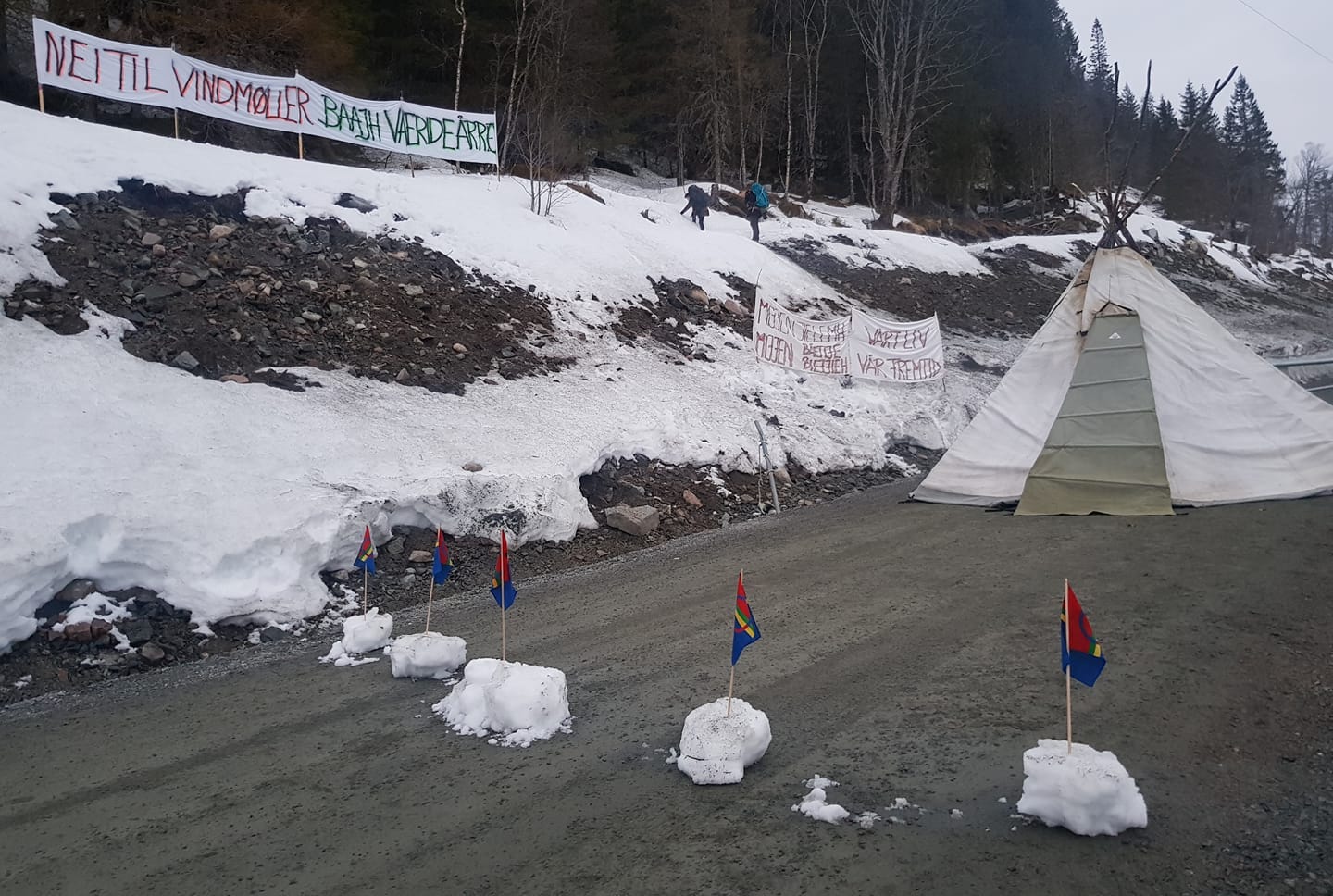Sámi mount new challenge to legality of Norway’s largest wind farm
Norwegian plans to build that country’s largest wind farm to date has put its green-energy obligations in conflict with its commitment to Sámi rights.

The largest Sámi organisation in Norway has joined forces with several of that country’s most prominent conservation groups to seek a halt to construction of a wind farm reindeer herders feel is progressing in violation of their rights.
If it survives this and a previous legal challenge, the Storheia wind farm is expected to go on-line in 2019. When complete, the wind farm would spread over a third of the 38-square-kilometer (10,000-acre) area that herders in the Trondheim area use for winter grazing. Herders say they fear for the worst after ongoing work to prepare for the land for installation of the 80 wind turbines disrupted their grazing this winter.
During a brief protest on Tuesday that blocked an access road to the site, Beaska Niillas, the head of Norske Samers Riksforbund, presented police with a motion to stop construction on the grounds that it violated Norwegian and international law.
[After a sudden rise in reindeer collisions, Norwegian rail authorities will speed up fence-building]
In 2017, Sámi groups lost a legal challenge in which they alleged that Fosen Vind, the firm granted a license to build and operate the wind farm, had not filed proper environmental-impact assessments. They also argue they were not justly compensated for the loss of the land.
That decision was appealed and Tuesday’s motion was filled in order to prevent Fosen Vind from continuing work until a final decision is handed down.
“Even though the case is still being decided on by the courts, they’ve already begun to destroy the environment,” Niillas told Norwegian media on Tuesday.
Officials in Oslo have argued that the wind farm is necessary if the country is to meet its greenhouse-gas emissions-reductions targets.
Norske Samers Riksforbund says, however, that the Storheia wind farm violates Norway’s obligations to protect the rights of indigenous groups such as the Sámi to practice their culture.